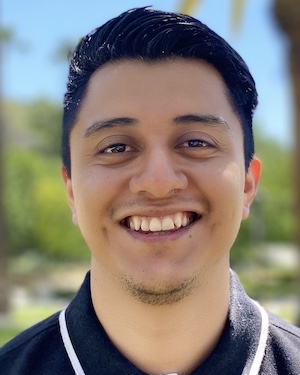Joining a Growing Number of Latinx Occupational Therapists

January 5, 2021
by Daniel
Recently the American Occupational Therapy Association (AOTA) published the 2019 Workforce and Salary Survey. Based on 15,596 responses (most being AOTA members), in 2018 race/ethnicity of occupational therapists were as follows: 3.6% Hispanic/Latinx, 2.6% African American/Black, 6.3% Asian/Pacific Islander, 0.2% American Indian/Alaskan Native, 1.7% Multiethnic, 1.6% Preferred not to Answer, with the majority of occupational therapists remaining at 84.0% Caucasian/White. Keep in mind that these numbers are based on people who responded to the survey. The United States (U.S.) Bureau of Labor Statistics also compiled data in 2019 from employed occupational therapists that were as follows: White, 75.7%; Black or African American, 10.2%; Asian, 12.4%, and Hispanic or Latino, 10.2%.
The truth is these statistics are not where I or many people would want them to be and they make me feel fortunate to be a part of this small, but growing percentage of Latinx occupational therapists. It is also a reminder that I must continue to push the narrative. In addition to the numbers shared above, I also represent an unknown statistic of undocumented occupational therapists in the United States. The closest statistic I found while doing my research was from the Migration Policy Institute (MPI) tabulation data from the U.S. Census Bureau 2018 American Community Survey, which found that 3.6% of “therapists” in the U.S. are “foreign-born workers”. Yet, there is no true number I can refer to as this number gathers occupational therapists, physical therapists, respiratory therapists, and speech-language pathologists under the term “therapists”, and the term “foreign-born workers” can include undocumented people, undocumented people with Deferred Action for Childhood Arrivals (DACA) status, and a variety of visas. Furthermore, disclosing immigration status is a sensitive topic to disclose on surveys or any type of data collection.
So why is this important you may be wondering? Well, as I have disclosed in a previous financial aid video, I am currently undocumented with DACA status. My entire life has been full of firsts, first person in my family to go to college, first to go to graduate school, and the list goes on. During the process and since officially becoming a licensed OT in California, the firsts just keep coming and as we begin 2021, I foresee many more happening this year. At some point this year I will be completing my Doctorate in Occupational Therapy (OTD) degree and applying for jobs. If someone would have told me this back when I was in high school, I would have not believed it. Back then I didn’t think it was possible to even go to college, much less that one day I would be at USC working on my doctorate degree. This is why the numbers above matter because to have access to even one professional that looks like you or that may come from a similar background can make a huge difference in someone’s decision to pursue a specific program and/or career as it did for me. Furthermore, having representation in the healthcare field for clients from diverse backgrounds is vital to providing the best care possible and better understand client beliefs and values.
This year my life is going to change, and it is scary/exciting as this will be one of the biggest firsts I’ve ever had to experience. The last two years at USC, I’ve had the opportunity to have mentors in the OT profession such as Dr. Celso Delgado, Dr. Jesus Diaz, Dr. Gabby Granados, Dr. Beth Pyatak, and Dr. Arameh Anvarizadeh, to name a few, who have supported me in ways that have made it possible for an undocumented student from Van Nuys to join this group of occupational therapists working to increase representation in our profession and make our communities’ voices heard. And I also want to give a shoutout to some of my classmates, Katie Bui, Marilyn Thompson, and Janis Yue, for also doing the work to increase diversity in OT these last few years and also working on their OTD.
For 2021, I have made two commitments. The first commitment is to become even more engaged in sharing my story and be a mentor to more OT students, applicants, and those interested in this field. The second commitment is to do more community work with organizations across the country such as Coalition of Occupational Therapy Advocates for Diversity (COTAD). These are my initial commitments I have planned this year in order to continue increasing those percentages shared earlier and help create an even more diverse, inclusive, and equitable OT profession. Change is slow but it’s up to us to make that change. If you are a potential applicant, someone interested in OT, or current student feel free to reach out to me! (.(JavaScript must be enabled to view this email address) or 818-571-8222). Let’s network and have these conversations!
⋯
Next by tag Diversity ⟩ Getting Involved ⟩
⋯





